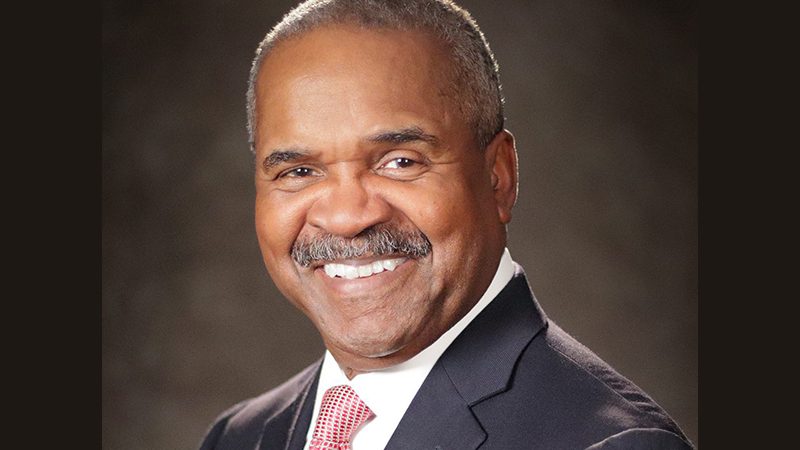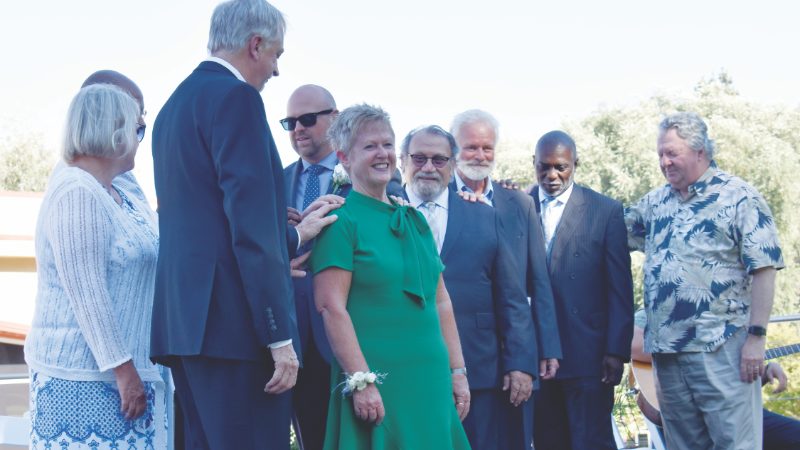What is the purpose of a parable? In the Gospels of the New Testament, parables were stories told by Jesus to illustrate a moral or spiritual lesson. In Matthew 20:1-16 Jesus tells the parable of the vineyard workers.
In the parable, a landowner went out to hire workers to tend his vineyard. The Bible says he went out early in the morning. He hired the workers and promised to pay them the “normal daily wage” (Matthew 20:2).1
At 9:00 o’clock in the morning, 12 o’clock noon, and 3:00 o’clock in the afternoon, he hired more workers and promised to pay them the normal daily wages. Then at 5 o’clock he again went to the marketplace and found workers who had not been hired, and he invited them to come and work in his vineyard.

When the workday was over, the landowner instructed the foreman to call all the workers together and pay them. The landowner then gave the foreman the most puzzling instructions. The landowner told the foreman to “pay them, beginning with the last workers first” (verse 8).
And that was exactly what the foreman did. He paid the workers that were hired at 5:00 p.m., then he paid the 3:00 p.m. hires, then those who were hired at noon, then the 9:00 a.m. laborers, and finally the early morning crew.
The foreman was instructed to pay all the workers exactly the same amount. He paid them all the “normal daily wage.”
Some of the workers were understandably upset, and they brought it up with the landowner, who responded by saying the following:
Friend, I haven’t been unfair! Didn’t you agree to work all day for the usual wage? Take your money and go. I wanted to pay this last worker the same as you. Is it against the law for me to do what I want with my money? Should you be jealous because I am kind to others? So those who are last now will be first then, and those who are first will be last (Matthew 20:13-16).
Let me be honest and tell you here that when I read this story, I had to remind myself that this is a parable. There is a moral and a spiritual lesson here for me to find. Find it and don’t get caught up with what appears to be the disparate treatment of some of the workers.
So I began to search, and I found it.
The reason Jesus told this story in the first place is because of a rather blunt question Peter asked: “We’ve given up everything to follow you. What will we get?”
The reason Jesus told this story in the first place is because of a rather blunt question Peter asked: “We’ve given up everything to follow you. What will we get?” (Matthew 19:27). Jesus responded:
I assure you that when the world is made new and the Son of Man sits upon his glorious throne, you who have been my followers will also sit on twelve thrones, judging the twelve tribes of Israel. And everyone who has given up houses or brothers or sisters or father or mother or children or property, for my sake, will receive a hundred times as much in return and will inherit eternal life. But many who are the greatest now will be least important then, and those who seem least important now will be the greatest then (Matthew 19:28-30).
Let me get to the point. First, our motive for service is vitally important in these passages of Scripture. Second, our sense of entitlement as Christians is not as important to God (the landowner) as is His desire to provide grace and salvation to all His children.

In life we sometimes give of our time, talent, and resources in proportion to what we think we will receive. These passages of Scripture remind us that God understands, appreciates, and will reward those who have made grave sacrifices for the kingdom of God. However, greatness in the kingdom of God is not measured by our good works. Remember: “But many who are the greatest now will be least important then, and those who seem least important now will be the greatest then” (Matthew 19:30).
Jesus intended to show that He has no favorites. As Christians we must guard against the temptation to believe that we are somehow entitled to receive some special bonus award because we are Christians. Or (do I dare say it?) because we are Seventh-day Adventists.
Some of us will serve God our entire lives. There are workers and their families who will serve God and the church for generations. However, as the story of the thief on the cross reminds us, others will come at 5:00 p.m. and will receive the full benefit of the free gift of God. That’s why we must continue to share this great message of love until Jesus comes.
If Jesus were talking to leaders today, that’s the lesson I believe He would share with them. The truth is, this spiritual lesson applies to all of us, not just leaders.
For the wages of sin is death, but the free gift of God is eternal life through Christ Jesus our Lord (Romans 6:23, NLT; emphasis mine).
1. All Scripture quotations are from the New Living Translation.
_____________________________
Leon B. Brown Sr. is the executive vice president of the Pacific Union Conference.
El enigma «últimos pero primeros, menos pero más importantes»
Por Leon Brown
Cuál es el propósito de una parábola? En los Evangelios del Nuevo Testamento, las parábolas son historias contadas por Jesús para ilustrar una lección moral o espiritual. En Mateo 20:1-16 Jesús cuenta la parábola de los trabajadores en la viña.
En esa parábola, un propietario salió a contratar trabajadores para trabajar en su viña. La Biblia dice que salió temprano en la mañana. Contrató a los trabajadores y prometió pagarles el «el salario normal de un día de trabajo» (Mateo 20:2).1
A las 9:00 de la mañana, a las 12 del mediodía y a las 3:00 de la tarde, contrató a más trabajadores y prometió pagarles el salario normal de un día. Después, a las 5 en punto, fue nuevamente al mercado y encontró trabajadores que no habían sido contratados, y los invitó a venir a trabajar en su viñedo.

Cuando terminó la jornada laboral, el propietario instruyó al capataz para que convocase a todos los trabajadores y les pagase. El propietario le dio al capataz las instrucciones más desconcertantes. El propietario le dijo al capataz que «les pagase, comenzando por los últimos que había contratado» (versículo 8).
Y eso fue exactamente lo que el capataz hizo. Pagó a los trabajadores que fueron contratados a las 5:00 p.m., pagó después a los contratados de las 3:00 p.m., luego a los que fueron contratados al mediodía, después a los trabajadores de las 9:00 a.m. y finalmente al equipo de temprano por la mañana.
El capataz recibió instrucciones de pagar a todos los trabajadores exactamente la misma cantidad. Les pagó a todos el «salario normal de un día».
Algunos de los trabajadores estaban comprensiblemente molestos y se lo plantearon al propietario, quien respondió diciendo lo siguiente:
Amigo, ¡no he sido injusto! ¿Acaso tú no acordaste conmigo que trabajarías todo el día por el salario acostumbrado? Toma tu dinero y vete. Quise pagarle a este último trabajador lo mismo que a ti. ¿Acaso es contra la ley que yo haga lo que quiero con mi dinero? ¿Te pones celoso porque soy bondadoso con otros? (Mateo 20:13-16).
Quiero ser honesto e indicar aquí que cuando leí esta historia tuve que recordarme a mí mismo que es una parábola. Hay una lección moral y una espiritual aquí para que yo la encuentre. Es cuestión de encontrarla y no dejarse engañar por lo que parece ser el trato disparatado a algunos de los trabajadores.
Así que comencé a buscar y lo encontré.
La razón por la que Jesús contó esa historia en primer lugar es debido a una pregunta bastante brusca que Pedro le hizo: «Nosotros hemos dejado todo para seguirte. ¿Qué recibiremos a cambio?»
La razón por la que Jesús contó esa historia en primer lugar es debido a una pregunta bastante brusca que Pedro le hizo: «Nosotros hemos dejado todo para seguirte. ¿Qué recibiremos a cambio?» (Mateo 19:27). Jesús respondió:
Les aseguro que cuando el mundo se renueve y el Hijo del Hombre se siente sobre su trono glorioso, ustedes que han sido mis seguidores también se sentarán en doce tronos para juzgar a las doce tribus de Israel. Y todo el que haya dejado casas o hermanos o hermanas o padre o madre o hijos o bienes por mi causa recibirá cien veces más a cambio y heredará la vida eterna. Pero muchos que ahora son los más importantes en ese día serán los menos importantes, y aquellos que ahora parecen menos importantes en ese día serán los más importantes (Mateo 19: 28-30).
Quiero ir al grano. Primero, nuestro motivo para el servicio es de vital importancia en estos pasajes de las Escrituras. Segundo, nuestro sentido de derecho como cristianos no es tan importante para Dios (el propietario) como lo es su deseo de proveer gracia y salvación a todos sus hijos.

En la vida a veces damos de nuestro tiempo, talento y recursos en proporción a lo que creemos que recibiremos. Estos pasajes de las Escrituras nos recuerdan que Dios entiende, aprecia y recompensará a aquellos que han hecho grandes sacrificios por el reino de Dios. Sin embargo, la grandeza en el reino de Dios no se mide por nuestras buenas obras. Hay que tener presente que «muchos que ahora son los más importantes en ese día serán los menos importantes, y aquellos que ahora parecen menos importantes en ese día serán los más importantes» (Mateo 19:30).
Jesús tenía la intención de mostrar que no tiene favoritos. Como cristianos, debemos protegernos contra la tentación de creer que de alguna manera tenemos derecho a recibir algún premio especial de bonificación porque somos cristianos. O —¿me atrevo a decirlo?— porque somos adventistas del séptimo día.
Algunos serviremos a Dios toda nuestra vida. Hay trabajadores y sus familias que servirán a Dios y a la iglesia por generaciones. Sin embargo, como nos recuerda la historia del ladrón en la cruz, otros vendrán a las 5:00 p.m. y recibirán el beneficio completo del don gratuito de Dios. Es por eso que debemos continuar compartiendo este gran mensaje de amor hasta que Jesús venga.
Si Jesús estuviese hablando con los líderes hoy, esa es la lección que creo que compartiría con ellos. La verdad es que esta lección espiritual se aplica a todos nosotros, no solo a los líderes.
Pues la paga que deja el pecado es la muerte, pero el regalo que Dios da es la vida eterna por medio de Cristo Jesús nuestro Señor (Romanos 6:23; énfasis mío).
1Todas las citas de las escrituras son de la Nueva Traducción Viviente (NTV).
_____________________________
Leon B. Brown Sr. es el vicepresidente ejecutivo de la Conferencia de la Unión del Pacífico.






